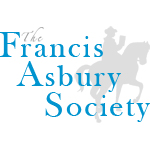by Dennis Kinlaw
There is a great chasm between the sinful people and the saving God. So God says, “I looked for a person to stand in between, for someone who could bridge the gap. I looked for an intermediary.” But he says, “I was appalled that I could not find one.” So He said, “When I could not find one, my own arm brought Me salvation.” And again, you may remember that I pointed out that in [Isaiah] 40 through 55 “the arm of the Lord” refers to God’s mighty power to save. But Isaiah 53:1 tells us that that arm, when it was revealed, did not look at all like what this world calls power. It is the power of self- sacrifice.
The power of one to sacrifice himself. It is a far greater biblical illustration of power to see one sacrifice himself for another than it is to see one impose his way on another. The world only understands power in terms of imposition. But what we are talking about here, it seems to me, is the exact reverse. In God there is enough power so that He can let us impose our way, our evil way, upon Him.
God says, “I looked and I couldn’t find one. Abraham doesn’t fit this bill. Moses doesn’t fit this bill. Samuel doesn’t fit this bill. David doesn’t fit this bill. Where am I going to find one? When I couldn’t find one, I became one.” And why did the Trinity become one of us? So that we could become one of them. Oh, not so that we could become Deity—of course not—but so we could become part of that divine fellowship.
(Dennis Kinlaw, Lectures in OT Theology, pp. 406-407)
